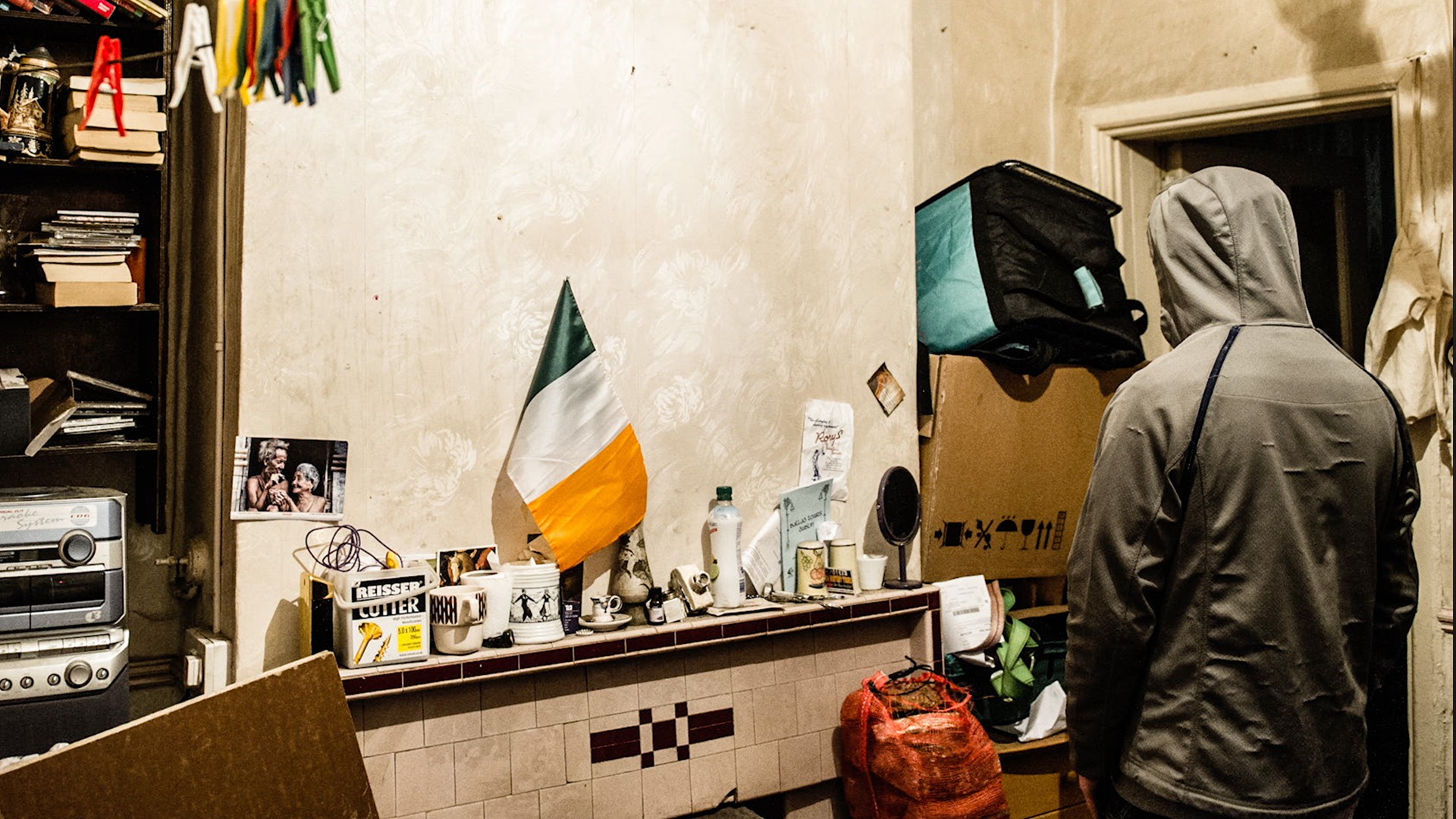
Sarah, a single mother who, after being evicted from her apartment, was unable to afford rental accommodation in Dublin. She faces away from the camera for fear of being identified by her employer.
Megan Woods, a member of the activist group Home Sweet Home that had occupied Apollo House in Dublin
The interior of a squat where four men are living on the north side of Dublin
Samuel Awe, pictured right with other activists, organizes events to raise awareness around homelessness and mobilize a neighborhood watch to provide support to rough sleepers.
Meireka Radford, a member of Home Sweet Home, pictured in front of Apollo House in Dublin
Graffiti in Berlin, where an influx of new residents, inadequate housing stock, and rampant gentrification have driven rents beyond the means of many longtime inhabitants. Photo by Tobias Kruse
Protesters marched behind a heavyset blue and yellow truck kitted out by Stop Evictions Berlin for demonstration, carrying signs declaring ZORN (anger) and STOP ZQANGSRÄUMUNGEN (stop evictions). One lady in a white wool hat toted a sign saying SORRY HIPSTER… THIS IS WHAT DEMOCRACY LOOKS LIKE!! GENTRIFICATION FUCK IT!! Innana, a 21-year-old who fled her home in Damascus in 2015 and came as a refugee to Berlin, had joined the demonstration spontaneously with her German friend. She was renting a room for $213 a month in Kreuzberg, because she was able to continue renting on an "old contract," similar to a rent-controlled apartment. If she had to leave and find a new place to live, she doesn't know how she could afford it. Isabel*, a 24-year-old student who lived her whole life in Kreuzberg, rented an apartment in the area with two friends, all three of them neighbors as kids. They were paying $453 a month each for their rooms, which was more, they said, than they could afford. Their parents were paying double for rent, and one of their grandmothers had to move farther from the city because of the rising costs. "We want to stay in this area," said Isabel."Gentrification is moving through the city," Filip said, pointing out the window to cranes looming over the flashy new high-rise apartments and offices in "Media Spree," a riverside development site that now houses the offices of Mercedes and fashion-tech empire Zalando.
Filip, a housing activist and graduate student, helped organize an anti-gentrification protest in Kreuzberg that grew to more than 1,000 protesters. Photo by Tobias Kruse
A scene from Berlin's anti-gentrification protest this past February. The sign reads STOP EVICTIONS. Photo by Dario J Laganà
Cranes dot the skyline of the Dublin Docklands, currently undergoing a $740 million luxury renovation that will include office, retail, and residential space.